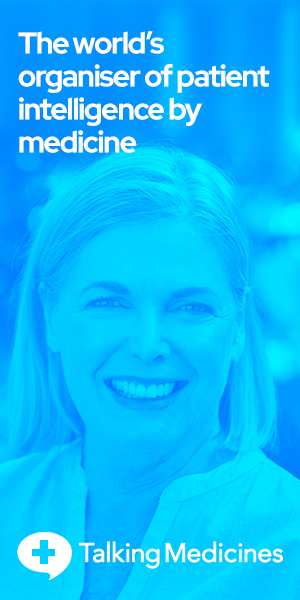In celebration of women this month, Distilled Post spotlights the incredible NHS female leaders and the measures they have taken to increase equal representation within healthcare.
Authentic leadership, especially within public health, needs diversity.
It requires a breadth of expertise informed by multiple backgrounds, perspectives, and life experience.
In the fight against the COVID-19 pandemic, the presence of equally dedicated men and women ensured the UK’s swift delivery of care. It is without a doubt that every person working on the front lines, no matter their gender, race or sexuality, dedicated equal amount of effort to conduct life-preserving work.
What the pandemic has shown is that healthcare workers are the beating heart of every functioning society. In a recovery setting, global demand for healthcare professionals will increase as will the need to maintain diversity within this pipeline. Changing demographic needs and expanding health systems will need both men and women to drive innovation to ensure we can save more lives.
The NHS: A Diverse Network of Health Leaders
As the world’s largest employer, the NHS knows this truth intimately.
At both team and organisational level, the NHS is a bastion for promoting fairness and equal opportunity to its male and female employees. The presence of both men and women allow for health policies to integrate everyone’s lifelong needs into policy. The NHS’s dedication to 50:50 leadership diversity ensures that all approaches are intersectional and permits equal access to care.
To date, the organisation employs over 930,000 women, which constitutes 77% of the entire NHS workforce. Additionally, surveys from the King’s Fund finds that overall, individuals within healthcare feel that female and male leaders hold the same level of authority. The finely tuned balance of men and women in healthcare’s executive decisions permits equal opportunities for those currently working in the sector, and for those who aspire to do so.
Future generations of healthcare aspirants can now look up to individuals like the NHS Western Sussex Hospitals’ Dame Marianne Griffiths and Health Education England’s Dr. Navina Evans as examples of excellence. Under Dame Griffith’s leadership, hospitals across West Sussex have grown and truly flourished. As a result of her work, 15,000 prospective NHS workers will find employment within these institutions. This occurs at a time when supporting the future faces of healthcare is more important than ever.
Similarly, Dr. Evans’ work in health education is a stellar example of how diversity in leadership is needed to inform the NHS’ future success. Her ‘blended learning’ initiative ensures that current and future NHS employees are prepared to operate within a digitally-forward environment. In addition, her call for people to join the NHS family underpins her dedication to not only expand but also emphasise the NHS’s strong sense of community.
‘The best thing about [the NHS’s] is its people – the patients, your colleagues and the communities you get to engage with. It’s really rich, and enriching, to be involved in something that puts you in touch with the human condition every day’
Dr. Evans’ emphasis on working to support the ‘human condition’ highlights the sensibilities that diversity encourages within healthcare leadership; a characteristic which we as members of the health ecosystem value and aspire to.
The Benefits of Diverse Healthcare Leadership
Gender diversity and parity promotes numerous and obvious benefits within public health.
From an academic and practitioner perspective, the blended behavioural responses issued by men and women in public health positions account for the NHS’ celebrated success.
The diverse array of talents in all aspects of the UK’s health system have made attaining the NHS’s goals more realistic, especially during the pandemic. According to Professor Ruth Sealy’s report for the NHS, ‘Action for Equality: The Time Is Now’, the paper finds that the rising gender partnership in healthcare boardrooms increased productivity and efficiency.
‘[Balanced] Chairs demonstrate that intent, backed up by purposeful determination […] nurture a culture of compassion, organisational performance, quality of care and better use of resources’
Additionally, the Chair of NHS Improvement, Ed Smith, states that ‘inclusive and diverse boards are more likely to be effective boards. He quotes Lord Mervyn Davies in saying that diverse boards are:
‘[…] better able to understand their customers and stakeholders, and to benefit from fresh perspectives, new ideas, vigorous challenge and broad experience. This in turn leads to better decision making’
The Chair of the National Care Association, Nadra Ahmed, is an example of what diverse health boards and ‘fresh perspectives’ can overcome in terms of care challenges. In her career spanning over 35 years within social care, Ms. Ahmed was awarded an OBE for her services to health and social care. She has been vocal about the challenges the NHS and care services face, particularly in terms of immigration proposals that could restrict the influx of talent within the sector.
Her work to protect the international talent pipeline for health and social care has created the high care calibre we see today. More importantly, her efforts have directly actualised the presence of innovative thinking, perspectives and actions from the diverse individuals who work in public health and social care today. Without her leadership or the care workers who have acted tirelessly to protect care home residents during the pandemic, the NHS we know today would have encountered a more perilous landscape than anticipated.
A Case Study for Success
In a year of crisis, diverse leadership and ‘better decision making’ have never been more paramount within healthcare. Thankfully, individuals like The Royal Free’s Caroline Clark and Joanne Segasby of James Paget University NHS Foundation Trust (JPUH) have been able to weigh in strategies to ensure best quality of care.
In particular, Segasby’s work to continue emergency and elective surgeries throughout the pandemic’s winter wave has ensured that millions of lives were saved at this vulnerable time. Her dedication to provide ‘emergency and elective surgeries’ to both ‘COVID and non-COVID patients’ is testament to successful strategies borne of cooperation and diverse leadership.
Caroline Clark also proves that leadership diversity is needed to surmount the challenges of the pandemic. In a recent interview, patients at the Royal Free commended the hospital staff and leadership for the level of care they provided:
‘Where better, then, to obtain a true picture of Britain’s COVID crisis? […] I can report that things are desperate, though exhausted staff are still holding the line’
Inspired to Promote Diversity Further
This unique blend of diversity, compassion and dedication to care is evident in healthcare teams like the Royal Free and JPUH, which have improved patient outcomes during the pandemic.
However, the uncomfortable reality is that there is more to be done to uplift female leadership in healthcare.
According to the NHS’s report, ‘NHS Women on Boards 50:50 by 2020’, seven case studies within it acknowledge the necessity to create more supportive working conditions for female and BAME healthcare workers. It finds that 500 more women are needed on NHS boards to meet its diversity board target for 2020.
Although data does suggest that the number of women in leadership roles is increasing across the UK’s public health ecosystem, women remain underrepresented in its highest echelons. As the NHS’s own Samantha Allen reminds us, there has been some progress made to improve leadership diversity, but we must not stop here.
‘So where are we now? The good news is that we have made some progress but there remains much more for each of us to do. […] We are increasingly looking at leadership through an intersectional lens […] the absence of a national data set that tracks the protected characteristics of NHS boards continues to be problematic’
The Road to Equality Within Healthcare
To further promote diversity in healthcare, the NHS continues to pledge efforts in spotlighting the hard work of men and women in the medical field.
Kathy McLean, an Executive Director of NHS Improvement, credits diverse role models in the NHS with inspiring her efforts to advance service and care. To ensure that future generations receive the same amount of support, care and encouragement needed to innovate health provision, Kathy’s interaction with diverse teams should serve as a benchmark. Her statement in the NHS’s research paper, ‘Women on ‘Boards, expands:
‘I was fortunate to work with brilliant people and I looked to them as role models. If other leaders were positive about my contribution it encouraged me to keep going […] I am still learning of course, but when I reflect on the past 34 years, I feel that by saying yes, being helpful, believing in myself when it was not easy to do, finding inspirational people as role models […] have all contributed [to my career]’
Looking forward
To conclude, Sam Allen’s words on gender balance and successful healthcare provision could not be more apt in this day and age:
‘We must move away from the concept that gender balance is tokenistic or a “nice to have” to something that is essential and needed now. This requires an inclusive and compassionate approach to leadership with everyone in these vital positions held to account for their contributions’
While public health prepares for recovery, only ‘inclusive’ and ‘compassionate’ leadership will ensure future success. Most importantly, diverse thinking and action will help healthcare institutions to understand, empathise and fully meet the needs of the future.
In celebration of International Women’s Day, Distilled Post acknowledges and thanks the NHS for its commitment to aligning itself with diversity. Its ambition to uphold a positive, compassionate and inclusive culture not only strengthens it internally, but also inspires us all to implement positive change. We applaud the men and women who work towards actualising gender equality, and equality for all in the field.
Recommended for you

What Does the Tory Leadership Battle Mean for the NHS?
As Truss and Sunak compete to become the new PM, one key topic is forming a noticeably small part of the Tory leadership debates.

Drug Decriminalisation: Could the UK Follow Portugal?
Portugal’s drug decriminalisation has reduced drug deaths and made people feel safe seeking support. Would the UK ever follow suit?
Trending

Drug Decriminalisation: Could the UK Follow Portugal?
Portugal’s drug decriminalisation has reduced drug deaths and made people feel safe seeking support. Would the UK ever follow suit?

Calling All Unvaccinated UK Adults
With Covid cases rising, the NHS is urging the 3 million UK adults who remain unvaccinated to come forward.





